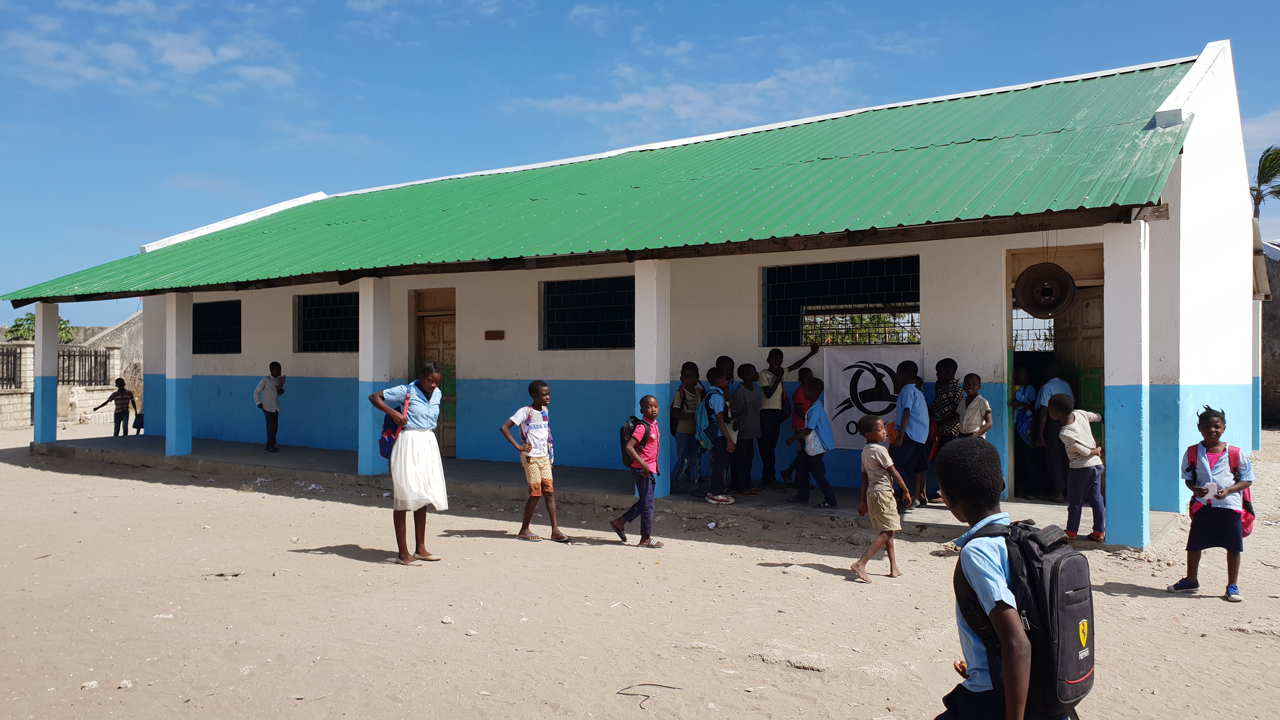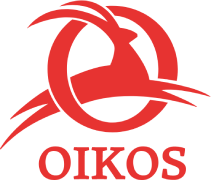A school for the children of Quirambo
Resilient schools and safe water

Country
Learning safely after Cyclone Kenneth
On 25th April 2019, Cyclone Kenneth struck Northern Mozambique with extreme violence. It is the strongest cyclone ever recorded in this area. Villages in the Quirimbas Archipelago suffered enormous damage: on the island of Ibo, 90% of the population lost their houses. Here also public buildings have been seriously damaged.
Oikos was the first to get involved in the reconstruction, concentrating its efforts on both private homes and health centres and schools. As of today, we have already rebuilt 6 schools in the Ibo District. With this project we are working to restore the elementary school of Quirambo, to ensure safe education for 150 boys and girls.
Two and a half years after Cyclone Kenneth, many school buildings in the hardest-hit areas still lack roofs, latrines and clean water. Around 30,000 children up to the age of 17 are conducting school activities in temporary structures, made of improvised tents, and without any school equipment. Blackboards, desks, and chairs are a luxury they cannot afford.
Thanks to the support of the Waldensian Evangelical Church we are rebuilding the primary school of Quirambo with sustainable techniques and using local materials. In this way, about 150 children will be able to attend classes in safety. Our approach is collaborative, and we involve local authorities and provincial government. Our goal is to identify a model of reconstruction to be replicated in the Region.
Works focus on the arrangement of 2 classrooms and the construction of a rainwater harvesting system, which the building lacks. All actions are carried out to improve access for people with disabilities.
At the same time, we are supporting the teachers and the school district services with the aim of improving access to education for the most vulnerable groups, such as women and people with disabilities.
Reducing the negative effects of environmental disasters and learning how to manage emergencies is a key issue, especially in these contexts. That's why we promote awareness and prevention campaigns on these issues targeting the teachers and the community, particularly through the creation of theatre performances.
Il progetto in numeri
180k
potabile in Tanzania
22k+
raccolti a Ibo, Mozambico
52k+
in Mozambico e Myanmar
11k+
di educazione nel mondo
200
di attività economiche
in Tz e Myanmar
1700
in Italia
1700
in Italia
52k+
in Mozambico e Myanmar
1700
in Italia
